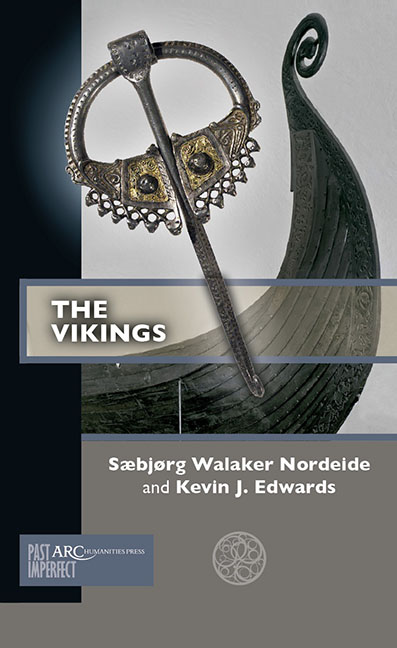Chapter 4 - The Viking Phenomenon
Published online by Cambridge University Press: 20 November 2020
Summary
In the preceding pages, the Viking phenomenon, in terms of events lasting up to the mid-eleventh century, has been pre-sented in a highly summarized and selective form. The “who,” “when,” and “where” relating to that astonishing group have been recounted, and various antecedent conditions have been mentioned. The key question of “why” has not been developed, so let us now introduce a brief examination of this topic as a prelude to itemizing some factors which we con-sider to be significant, or of interest, to the Viking experience, and this is followed by an examination of the Viking legacy.
Why Did the Vikings Occur?
In a thoughtful summary review of the causes behind the advent of the Vikings, James Barrett listed the following aspects that he went on to assess in turn:
Technological determinism: the Vikings were renowned for their sea power and seamanship, but there is no reason why this could not have happened earlier given prevailing expertise.
Environmental determinism: the Medieval Warm Period, whatever its reality and geographical limits, meant that warm ocean temperatures and minimal sea-ice conditions acted as permissive factors, though probably not causal ones.
Demographic determinism: evidence for population pressures is probably piecemeal and nebulous, whereas the militarization of pre-Christian Scandinavia associated with state formation might favour female infanticide and the need to acquire bride-price or a dowry.
Economic determinism: raiding opportunities on monasteries and proto-urban wics (that is, a “gold-rush mentality,” “silver fever”) may have been irresistible, especially if Arabic silver shortages occurred, and slave-trading was always an attraction.
Political determinism: power through wealth, land acquisition, and reputation.
Ideological determinism: intertwined aspects of religion, militarism, honour, fatalism, and peer pressure.
By variously accepting or rejecting these potential causal factors, Barrett assembled a portmanteau explanation which might be stated as: bands of young men seeking bride-wealth, joined by powerful social superiors, and imbued with a sense of fatalism, created a desire for wealth to fuel ambitions within and beyond Scandinavia.
- Type
- Chapter
- Information
- Vikings , pp. 103 - 110Publisher: Amsterdam University PressPrint publication year: 2019

